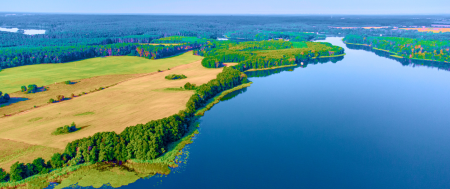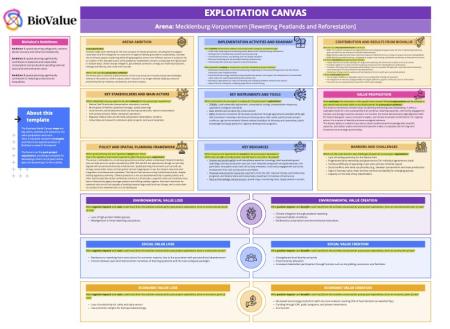
Area characterisation:
In Germany and particularly in Mecklenburg-Western Pomerania, there is approximately 300,000 ha of peatland, a large part of which was drained from 1960 to 1990 for intensive agricultural cultivation. Peatlands are the largest terrestrial carbon reservoir and have a critical role in ecosystem functioning and services by minimising flood risk, ensuring safe drinking water, mitigating the effects of climate change, preserving biodiversity, among others. Despite their importance, these areas have been drained and transformed mainly into agricultural areas, leading to the release of huge quantities of greenhouse gasses and the destruction of ecosystems. Following the election in Sept 2021, Mecklenburg-Vorpommern has now decided to become climate neutral by 2035. At the same time, the new federal government has decided to invest heavily in nature-based solutions. In Mecklenburg Vorpommern, the EU 2030 climate & energy framework and, in particular, the Land use and Forestry regulation for 2021-2030 (LULUCF) play an important role within their long-term vision of reducing greenhouse emissions, integrating climate and biodiversity goals oriented to establish near-natural peatland ecosystems as well as the rewetted peatlands.
Objective:
Stakeholder participation and co-creation of desirable future for these areas, allowing the identification of instruments and tools that could positively transform them.
Resources
Financing:
This project has received funding from the European Union’s Horizon Europe Research and Innovation Programme under Grant Agreement No 101060790.
Potential impacts/benefits:
BioValue helped identify gaps in current planning, proposed SEA improvements for biodiversity integration, and developed participatory tools like the card game for training and stakeholder engagement.
Actions:
Although there is a clear intention of implementing the initiative by the local government and several local organisations, spatial planning and further implementation face challenges since there is a need for multi-level policy and spatial planning integration. In particular, EU Common Agriculture Policy (CAP) makes it difficult for rewetted peatland to compete.
Contacts:
Ana Paula Rosa Silva Soares
